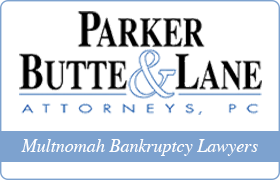 Fairview Workout Lawyers, Oregon
Fairview Workout Lawyers, Oregon
Sponsored Law Firm
-
 x
x

Click For More Info:
Parker, Butte & Lane
-
Parker Butte & Lane
1336 E Burnside St Ste 200 Portland, OR 97214 » view mapPortland, OR Bankruptcy Lawyer Changing Lives, One Case At A Time
Our attorneys provide complete and personalized representation and counsel for corporate and nonprofit clients as well as for individuals.
800-811-9561  Richard J. Parker Portland, OR
Richard J. Parker Portland, ORAttorney At Law - OR, 1980
Golden Gate University School of Law
Not enough matches for Fairview Workout lawyer.
Below are all Fairview Bankruptcy & Debt lawyers.
Lawyers
1-1 of 1 matches





 Richard J. Parker Portland, OR
Richard J. Parker Portland, OR